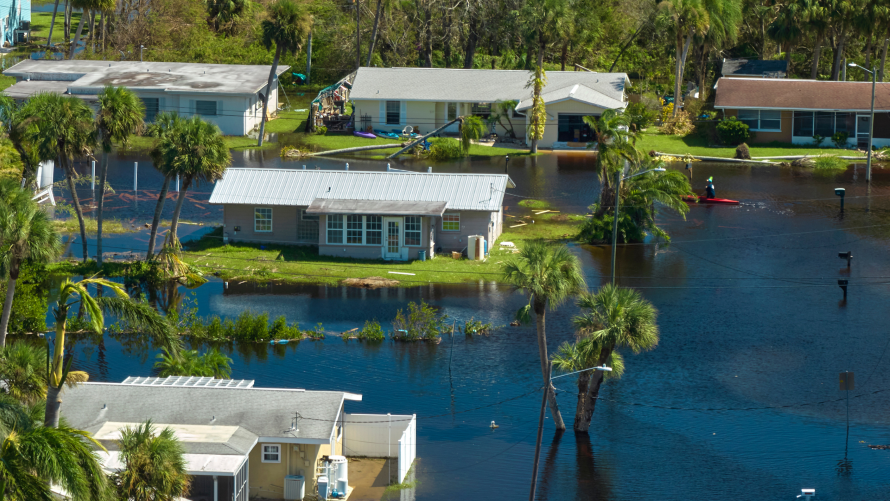Carolyn Kousky (Acting Chief Economist, Environmental Defense Fund) and her colleagues, in the article Insurance and climate risks: Policy lessons from three bounding scenarios (PNAS), explore how market and institutional transitions in response to escalating climate risks will influence future socioeconomic well-being.
By presenting the case study of Florida, the article highlights the crises of private insurance markets in regions highly exposed to climate change, and the progressive shift to the public-sector. In recent years Florida’s market has entered a period of crisis: insurance premiums have increased in 2022 after Hurricane Ian and, as a consequence, public insurance program like the Citizens Insurance Property Corporation became the largest insurer in Florida.
Given the uncertain context, it is therefore crucial to evaluate how occurring policy decisions may lead to different possible futures; future outcomes are driven by unprecedented climate issues, but also by the public–private interactions, socioeconomic issues, and financial tipping points. For these reasons, research methods that rely solely on historical experience are likely to miss possibly critical socioeconomic impacts.
The authors focus on three bounding scenarios to capture plausible future impacts in relation to the Florida insurance market and approaches to hurricane risk management: Inequality and Spatial Checkerboarding, High Public Sector Risk and Crash, Adaptation and Resilience.
The future of property insurance in Florida is uncertain and tied to policy decisions: since policy choices today have a deep impact on future outcomes, careful consideration of the longer-term impacts of today’s choices is required to secure more effective adaptation decisions.

